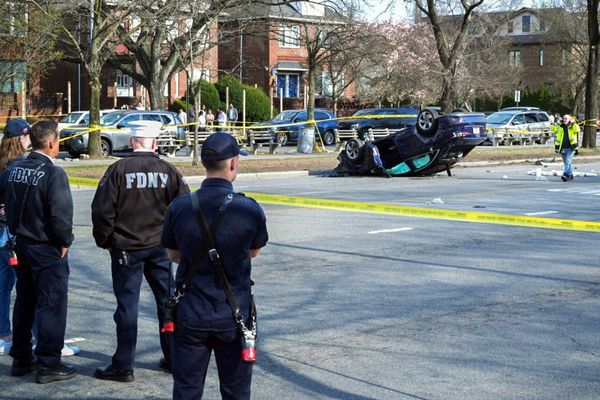
‘Turns out it’s all a con, then,” someone said to me. This was attention deficit hyperactivity disorder (ADHD) they were talking about, in reference to Monday evening’s BBC Panorama, which showed what looked like the decidedly doubtful practices of some reassuringly expensive private providers of psychiatry. So brilliant were some of the clinicians at the places featured that with the benefit of but a short questionnaire and a brief online chat, we were told they were able to diagnose ADHD and prescribe potent medication. Great! What service! And what a marvellous business plan: dosh for diagnoses, money for meds.
Panorama could hardly have made it clearer that while a handful of private clinics may be guilty of misdiagnosing ADHD, that doesn’t mean that ADHD itself isn’t a serious, debilitating condition. But if you’ve been a sceptic all along, or weren’t watching carefully enough, or you didn’t watch at all and merely half-heard or half-read something about the BBC programme, then you might well be the person who says to me: “Turns out it’s all a con, then.”
To be clear, it isn’t. Many lives are blighted by undiagnosed and untreated ADHD. It will often lead to chronic underachievement at school, in the workplace and relationships, and to generally terrible decision-making in every aspect of life. Self-medication often leads to addiction issues. Those with ADHD are vastly over-represented in the prison population. Suicide rates are appallingly high among men and women with ADHD. And these are overwhelmingly the kind of people who will wait for ever for diagnosis on the NHS and are extremely unlikely to have a grand to spare for a consultation at a private clinic, good or bad. This is an unfolding tragedy about which I’m available to make a Panorama show any time they care to ask.
My ADHD plainly didn’t manifest itself as described above. I have been rather successful in my line of work, so I can hardly say it held me back. What I can say is that for an awfully long time I found my life heart-stoppingly, nerve-shreddingly difficult, as I veered wildly between the thrill of it all, and the crippling anxiety and depression. More than anything else, it was simply unsustainably exhausting and, I came to realise, potentially life-shortening. For a long time I thought this all came with the territory. But my diagnosis showed me it didn’t have to. Once I knew what had been going on between my ears for all my life, with the help of therapy and some medication, I was equipped to make changes that slowly improved everything.
I wrote about my experience in these pages and banged on about it on the radio and television. Several people were kind enough to tell me that they recognised themselves in the picture I painted, and sought help. This is great, but the fact is that people like me – ie those who can afford to pay; apparently successful, high-profile ADHDers – seriously distort the whole picture. From a distance, it must look like all the adults with ADHD are doing rather well for themselves.
Not a week goes by without some actor, musician, writer or whoever sharing their diagnosis. I can see how this might sound like bleating self-pity and get on people’s nerves. To be honest, I get on my own nerves sometimes. This candour, or over-sharing perhaps, has helped to ease stigma around the condition and even – misguidedly in my view – seen it portrayed as some kind of superpower. But it has also had the unintended consequence of further overwhelming the already creaking NHS. ADHD has almost gone from being something no one wants to be labelled with, to a sought-after diagnosis – a demand the NHS can’t meet. And where there’s desperation, there’s money; so in gallops the private sector, for good or ill. For those who can afford it, the care you pay for can be a lifeline. But, as Panorama suggested, it can also be a disgraceful con.
The worst thing, in terms of the stigma around ADHD, is that we’re in danger of coming full circle. In the beginning it was a disorder with which no adult wanted to be labelled. It was something that particularly naughty schoolkids supposedly had. Then it became better understood. Those who could pay the money got the care they needed and sang hosannas about it. So the stigma slowly dissipated and demand for treatment rose. With drearily depressing inevitability some businesses saw a trough into which to put their snouts and, for a healthy price, hand out dodgy diagnoses. People see this is happening and so conclude that the whole thing is at best a bit of a craze and at worst a con. And before we know it, those with ADHD, or who think they might have it, are subject to a new, virulent variant of the stigma and shame we started out with in the first place.
Imagine being in their position, like a young woman I know in the same business as me. She’s pretty sure it’s ADHD that is making her life so miserable and wants to address it. With no hope of an NHS appointment any time soon, she has scraped together more money than she can sensibly spare to go private. So now she’s stuck between the NHS, which can’t help, and an expensive private consultation she possibly can’t rely on. “I just feel I’m now in this awful dilemma. Going private should be an easy, albeit very expensive, solution, but now people might dispute the diagnosis anyway,” she says.
“No one wants ADHD, no one wants to hand over a substantial amount of money, no one wants to take medication every day. All we want is clarity, and for everyday life not to be so damn difficult.”
• Adrian Chiles is a broadcaster, writer and Guardian columnist







